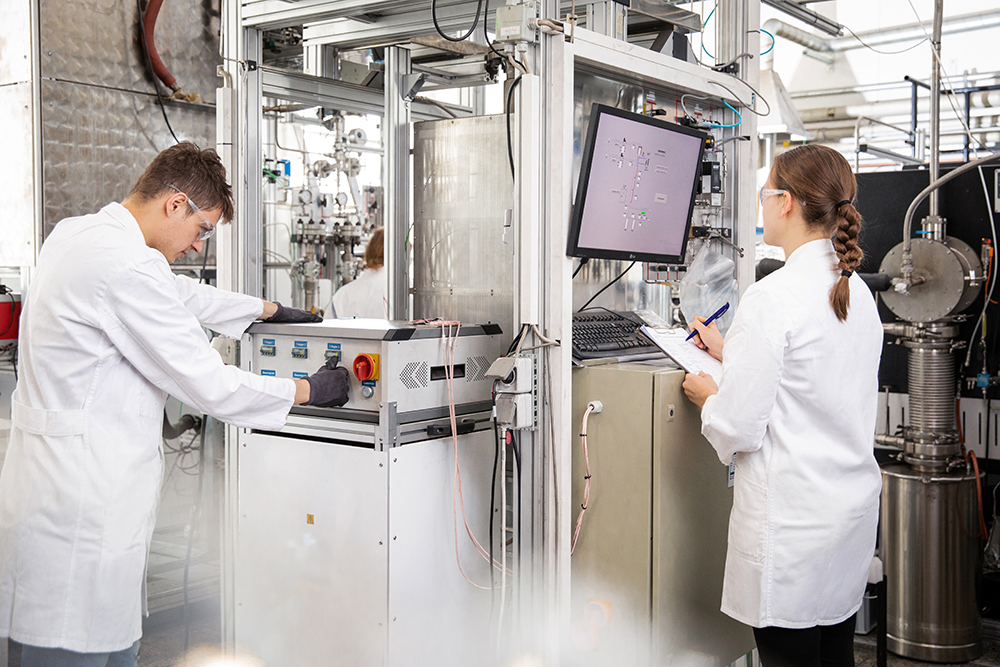
Investigation of the pyrolysis of carbon-containing input materials, e.g. various plastics, with pilot-scale systems and comprehensive analysis of the gaseous, liquid and solid products
Not all plastics can be mechanically recycled due to their chemical structure or poor quality. Pyrolysis offers a way of converting the carbon contained in waste fractions into products and using them as materials. These can be the starting materials for the same plastic polymer or reactants for other chemical syntheses. Which products are possible depends on numerous factors.
Advantages of pyrolysis
- Material utilization of plastic-containing waste fractions that cannot be mechanically recycled
- Higher carbon recycling rate in combination with mechanical recycling
- Basis for the synthesis of new polymers
- Saving of fossil resources
- Avoidance of CO2 emissions and by-products that would be generated during the complete re-synthesis of polymers
Services offered
- Experimental investigation of the thermally induced decomposition of polymers using instrumental analytical methods such as thermogravimetry and comprehensive pyrolysis gas chromatography mass spectrometry (py-GCxGC-MS)
- Identification of the decomposition temperatures and the associated decrease in mass
- Analysis of the pyrolysis products as a function of the pyrolysis temperature
- Analysis of complex liquid mixtures of organic compounds from the pyrolysis of various feedstocks using high-resolution two-dimensional comprehensive gas chromatography-mass spectrometry (GCxGC-MS)
- Investigation of the yields and qualities of products from the pyrolysis of various feedstocks such as plastics or biomass with complete mass balancing and analysis of the gaseous, liquid and solid products on a laboratory and pilot-plant scale
- Production of liquid pyrolysis products from plastics on a liter scale for experimental investigations in downstream processes
Technical equipment
- Thermogravimetric infrared spectrometry with direct coupling for the investigation of plastic pyrolysis (TG-IR)
- Comprehensive gas chromatography-mass spectrometry (GCxGC-MS) with various sample introduction techniques (liquid injection, headspace, SPME) and the option of coupling with an analytical pyrolyzer